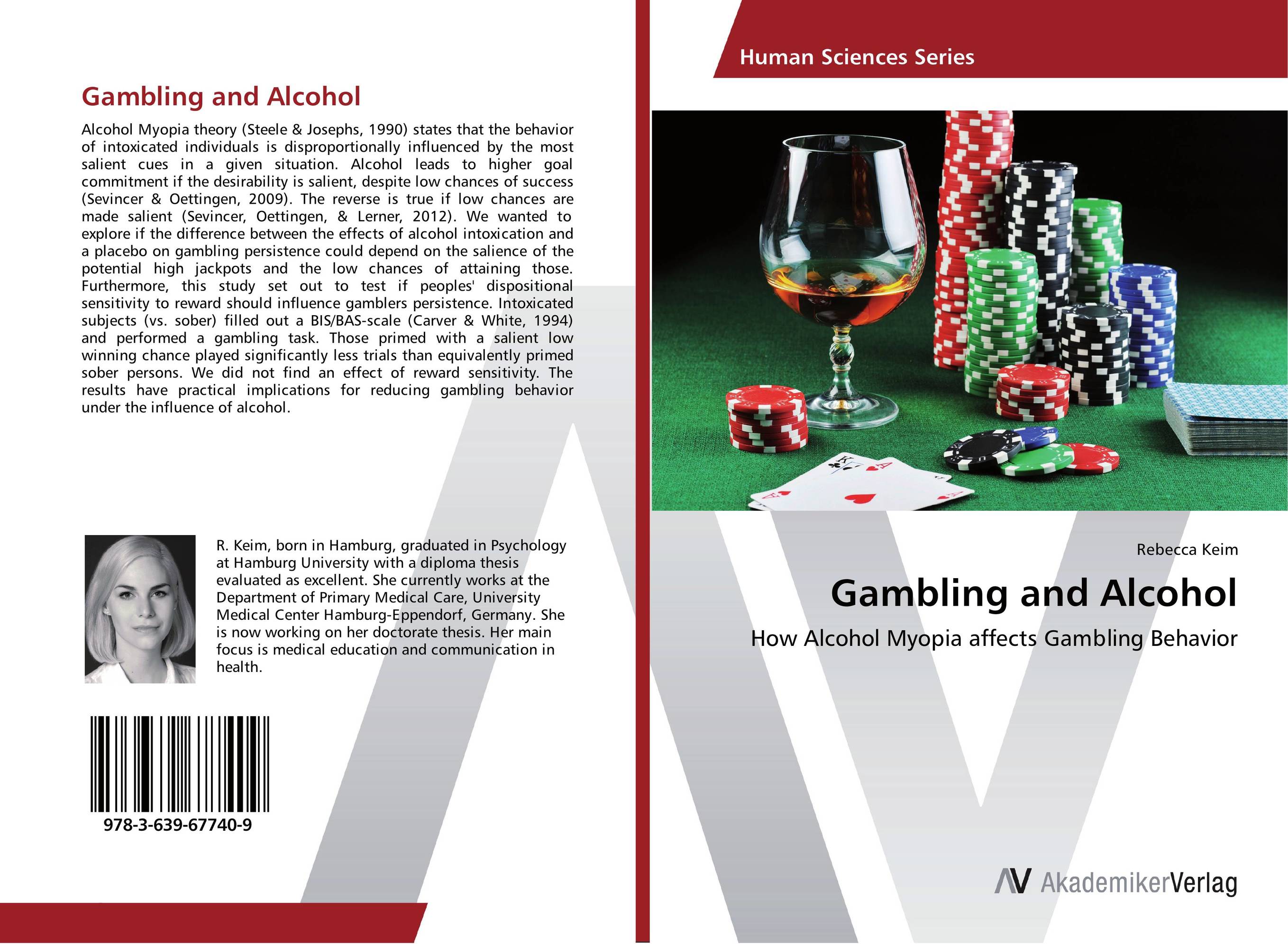| Поиск по каталогу |
|
(строгое соответствие)
|
- Профессиональная
- Научно-популярная
- Художественная
- Публицистика
- Детская
- Искусство
- Хобби, семья, дом
- Спорт
- Путеводители
- Блокноты, тетради, открытки
Gambling and Alcohol. How Alcohol Myopia affects Gambling Behavior

В наличии
| Местонахождение: Алматы | Состояние экземпляра: новый |

Бумажная
версия
версия
Автор: Rebecca Keim
ISBN: 9783639677409
Год издания: 2014
Формат книги: 60×90/16 (145×215 мм)
Количество страниц: 60
Издательство: AV Akademikerverlag
Цена: 23208 тг
Положить в корзину
| Способы доставки в город Алматы * комплектация (срок до отгрузки) не более 2 рабочих дней |
| Самовывоз из города Алматы (пункты самовывоза партнёра CDEK) |
| Курьерская доставка CDEK из города Москва |
| Доставка Почтой России из города Москва |
Аннотация: Alcohol Myopia theory (Steele & Josephs, 1990) states that the behavior of intoxicated individuals is disproportionally influenced by the most salient cues in a given situation. Alcohol leads to higher goal commitment if the desirability is salient, despite low chances of success (Sevincer & Oettingen, 2009). The reverse is true if low chances are made salient (Sevincer, Oettingen, & Lerner, 2012). We wanted to explore if the difference between the effects of alcohol intoxication and a placebo on gambling persistence could depend on the salience of the potential high jackpots and the low chances of attaining those. Furthermore, this study set out to test if peoples' dispositional sensitivity to reward should influence gamblers persistence. Intoxicated subjects (vs. sober) filled out a BIS/BAS-scale (Carver & White, 1994) and performed a gambling task. Those primed with a salient low winning chance played significantly less trials than equivalently primed sober persons. We did not find an effect of reward sensitivity. The results have practical implications for reducing gambling behavior under the influence of alcohol.
Ключевые слова: Alcohol, Slot Machine Gambling, Alcohol Myopia, Experimental Testing, Behavioral Activation System, Behavioral Inhibition System, Goal Commitment



